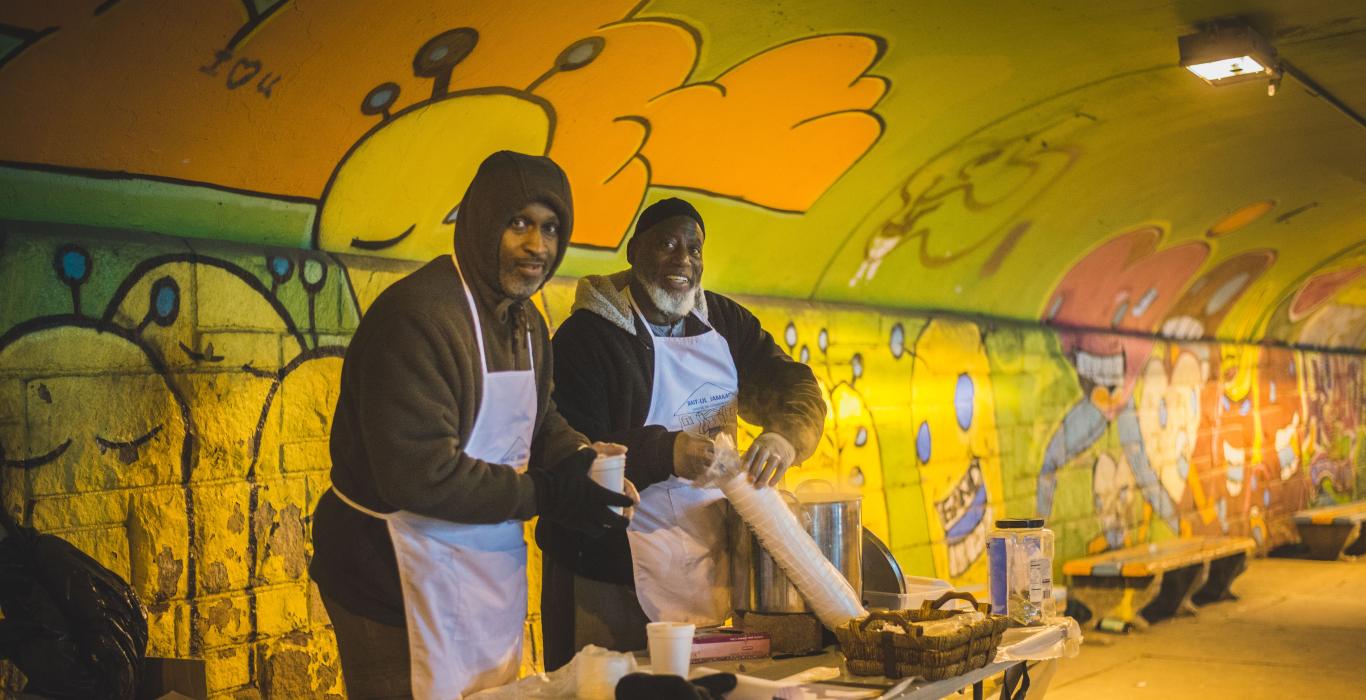Grassroots groups and nonprofits carry out vital services in communities across Canada. However, their lack of charitable status has left them largely overlooked by philanthropy – until now.
In Canada, the social-purpose sector is made up of not only registered charities, but also nonprofit associations, organizations, collectives, and social enterprises that are as diverse as the communities they serve. Many of these non-charities provide important services to communities across Canada and around the world, but have had trouble accessing funding to support their work. This blog post details the challenges faced by non-charities and the policy changes being made to better support them, and shares insights from funders that have led the way in working with non-charities.
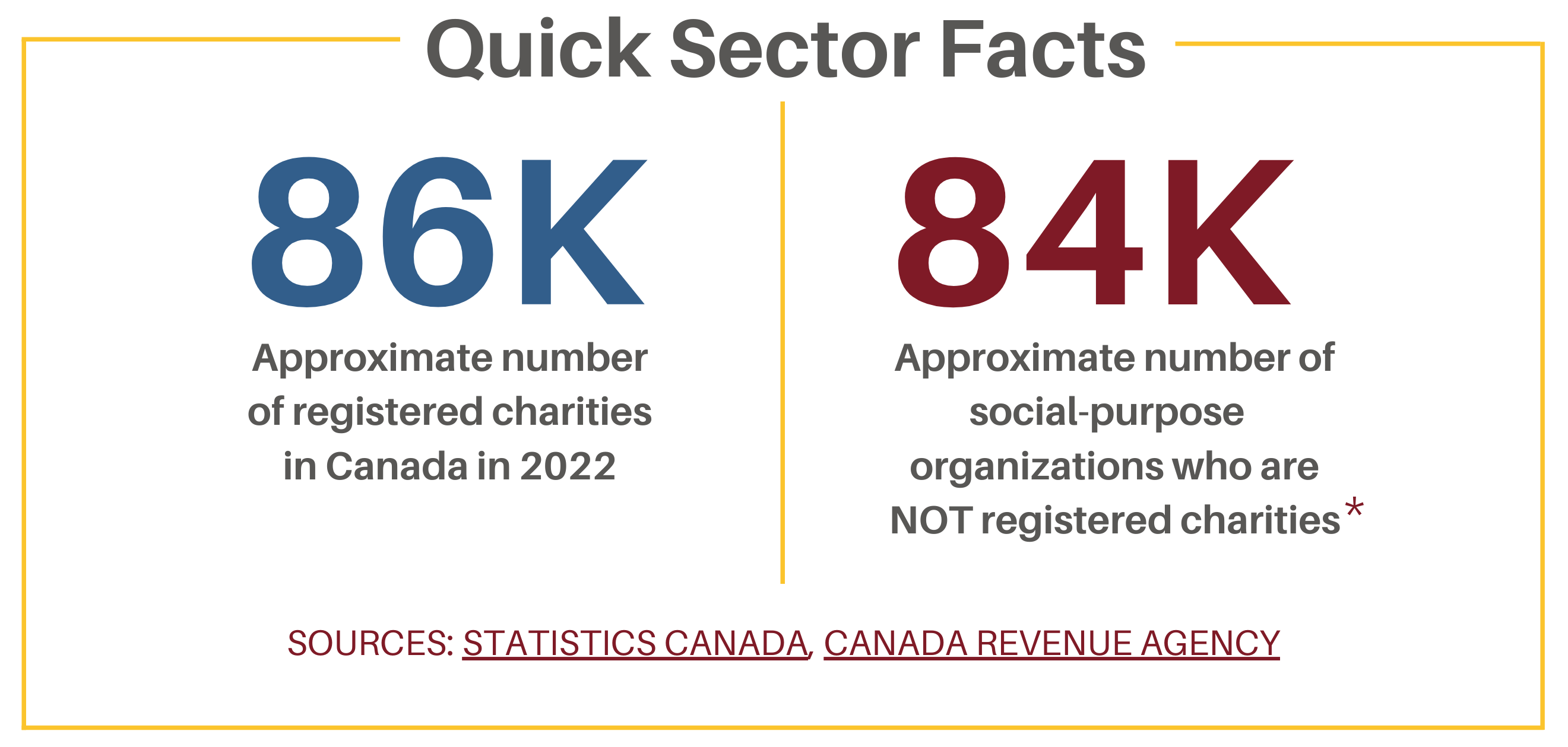
Non-charities such as grassroots groups are often dialed into the needs of marginalized or equity-deserving communities, and can be very effective at mobilizing volunteers to quickly address new needs amid changing circumstances, such as those brought on by the COVID-19 pandemic.
Despite the significant value non-charities bring to the sector and to our communities, they face challenges accessing funding for their work due to their lack of status as a registered charity and qualified donee. (The Canada Revenue Agency calls these groups “non-qualified donees” for this reason, but in this post we will refer to them as non-charities for simplicity’s sake.)
Obtaining charitable status from the federal government is a time-consuming undertaking, especially for an organization that is small or run by volunteers. Because those least likely to have charitable status are also organizations or groups from and serving communities who are already underfunded, these barriers to access compound and perpetuate social inequity.
Some non-charities make a conscious choice to operate outside of the CRA’s charitable system. For example, some Indigenous groups choose instead to work within systems that they feel better support their right to self-determination, and some climate justice groups see becoming a registered charity as a move toward institutionalization of the grassroots and potential erosion of trust. (Watch this webinar Philanthropic Foundations Canada hosted in partnership with Imagine Canada to hear more about these perspectives from Bill Mintram and Jacqueline Lee-Tam!)
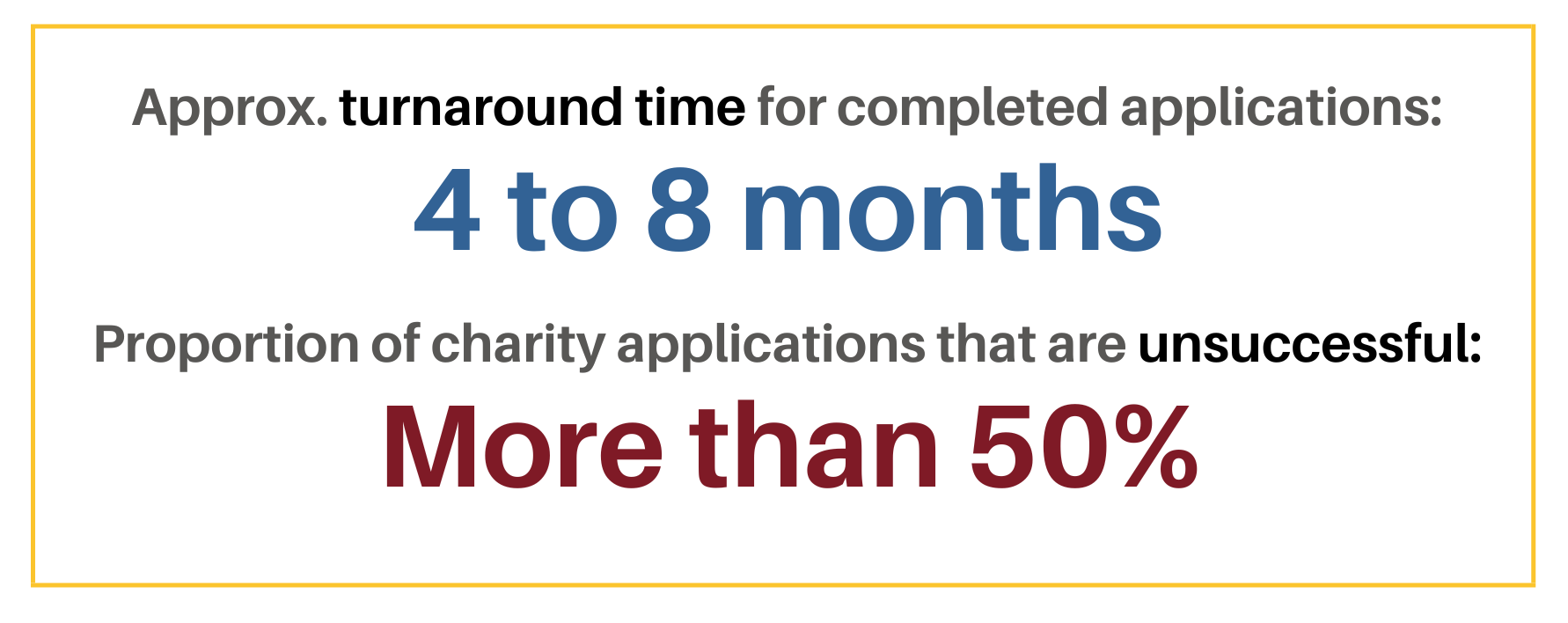
Prior to recent legislative changes, non-charities were not legally eligible to receive grants or donations for their own work from registered charities, including public and private foundations, except under tight restrictions. Before June 2022, the Income Tax Act allowed a charity to operate in only two ways: by carrying out its own charitable activities, or by making gifts to other qualified donees.
Charities and non-charities have found many legal ways to work together within the bounds of these rules, such as through intermediary relationships and shared platforms. Such collaborations can support the missions of both partners through the sharing of skills, specialized knowledge, equipment, resources, and key relationships.
However, while the expertise and perspectives of the non-charity are often valued in these partnerships, charities were required to exercise direction and control over the use of any resources they transferred to non-charities, and the activities of the partnership legally belonged to the registered charity.
The outdated rules around direction and control have been hindering these partnerships with legal complexity and inherent power imbalance. Senator Ratna Omidvar, in her proposed Bill S-216, flagged direction and control as problematic and as creating barriers to equal partnership between charities and non-charities. As a result of continued advocacy, these rules are changing in 2022. Recent legislative amendments in Bill C-19 mark the end of existing direction and control requirements, which will make collaborations between charities and non-charities an even more effective and transformative means of sharing resources, cultivating trust, and better meeting community needs.

With this change, non-charities will be able to receive disbursements from foundations and other registered charities, provided that the funded activities further the purpose of the granting organization. Funders who have never supported the work of non-charities before will now have the opportunity to do so.
Understandably, some funders might be apprehensive about this new opportunity. Charitable status is often considered a marker of organizational trustworthiness due to the level of financial accountability required of registered charities (even though many non-charities maintain similarly high standards of accountability, financially and otherwise). Detailed financial and governance information from registered charities is publicly available via the CRA and easily accessible to potential funders, while non-charities seeking funding might have to be more proactive about demonstrating their accountability and organizational standards of care.
Modified accountability measures from the CRA will support these new funding relationships by helping ensure funds granted to non-charities go toward charitable purposes. However, funders who recognize the social value of non-charities have been finding ways to support them – either directly or in partnership with charities – since well before policies changed to facilitate this. Here are some examples of foundations working with non-charities:
Canadian Race Relations Foundation
The Canadian Race Relations Foundation (CRRF) is a charitable organization and Crown corporation operating at arms’ length from the Canadian government. In support of their mission to eliminate racism and all forms of racial discrimination in Canadian society, they began making grants to charities and to nonprofits with charitable partners in 2021. Their National Anti-Racism Fund, which began accepting applicants in early 2022, supports the projects of nonprofits with charitable partners, as well as mission-aligned events hosted by nonprofits themselves.

“We heard from smaller organizations and non-profits who need funding and struggle to find funding to work on anti-racism projects. At the CRRF, we feel that it’s essential to fund this part of the sector to enable the great work that many organizations are doing despite not being able to access funding. Anti-racism/anti-hate work is often undertaken by small organizations and non-profits who are underfunded or who do this work off the side of their desks. These groups are often not resourced enough to become registered charities.”
- Angela Lee, Director of Partnerships & Research, Canadian Race Relations Foundation
Learn more about the CRRF’s National Anti-Racism Fund by visiting their website.
The Toronto Foundation
The Toronto Foundation’s pilot of the Black and Indigenous Futures Fund (BIFF) directed $80,000 in funding toward eight grassroots groups, and an additional $320,000 toward sixteen qualified donees. The Toronto Foundation, drawing funds from their operating budget instead of from their discretionary or charitable dollars, set up service contracts with each of the eight funded grassroots groups with the aim of providing them as much “flexibility and autonomy” as possible through such a partnership.
 Like all grants given through the Toronto Foundation, this funding was unrestricted, and recipients were chosen based on the merits and alignment of the organization rather than based on a proposed project. The Toronto Foundation identifies unrestricted funding as crucial in supporting the long-term sustainability of community-serving organizations because it allows them to direct resources to areas of greatest need. (Check out Imagine Canada’s recent research on unrestricted funding in Canada to learn more about funder perspectives on this topic!)
Like all grants given through the Toronto Foundation, this funding was unrestricted, and recipients were chosen based on the merits and alignment of the organization rather than based on a proposed project. The Toronto Foundation identifies unrestricted funding as crucial in supporting the long-term sustainability of community-serving organizations because it allows them to direct resources to areas of greatest need. (Check out Imagine Canada’s recent research on unrestricted funding in Canada to learn more about funder perspectives on this topic!)
Each of the eight funded non-charities met with the Foundation to co-create a service contract based on their plans for spending the funds. To further support direction and control requirements of the time, the Foundation disbursed 50% of the funding to each non-charity at the beginning of their funding period and the other 50% following a mid-point check-in. The Toronto Foundation funds using a trust-based philanthropic model, and worked to foster these trust-based relationships throughout the granting period despite the necessarily transactional nature of the initial service contracts.
“One of [the BIFF recipient organizations] is focusing on increasing their fundraising so they're looking at hiring a marketing person. Another group is focusing on an art exhibition. Another group is focusing on Indigenous curriculum and herbal medicine. Another group is focusing on Black women and mental health and providing therapists for them. The groups that we've supported through BIFF are using the funding as they see fit. The funding has helped to build up their capacity, which a number of them are currently doing … or the funding has gone to support an entirely new project.”
- Phylicia Davis-Wesseling, Community Relations Officer, Toronto Foundation
A community leadership table of sector experts who are Black, Indigenous and people of colour led the development and implementation of the funding program, and all recipient organizations, whether registered charities or not, had Black or Indigenous leadership and served Black or Indigenous communities in Toronto. The enthusiastic response to the call for applications punctuated a need for more funding opportunities designed to support Black-led and Indigenous-led charities and non-charities:
"This first pilot to fund non-qualified donees directly revealed to us this whole segment of our sector that is flying below our radar. And the tremendous demand for this program really demonstrated why we need to do more of this, especially as a funder committed to advancing equity. We recognize the non-qualified donees we support are typically smaller, driven by racialized and/or Indigenous leadership. These are the organizations closest to the ground, who understand their communities best and we want to provide the resources they need directly."
- Mohamed Huque, Director, Community Impact, Toronto Foundation
Laidlaw Foundation
At Laidlaw Foundation, the longtime embeddedness of grassroots support within their mission is reflected in their staff and leadership:
“Everyone on the team has some form of connection to the grassroots. Either they started in a grassroots group [or] they're still connected to it and that's something we bring to the table.”
- Guntas Kaur, Former Lead, Research and Evaluation, Laidlaw Foundation
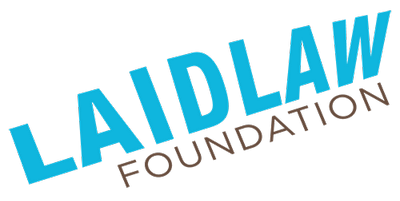 The Foundation’s mission includes supporting youth-led and youth-serving projects, many of which are led by grassroots groups who are non-charities. Taking a flexible, idea-first approach to each organization, the Foundation decides which projects to fund based on alignment with their current strategic priorities: to work under or against the youth justice system, the education system, and the child welfare system.
The Foundation’s mission includes supporting youth-led and youth-serving projects, many of which are led by grassroots groups who are non-charities. Taking a flexible, idea-first approach to each organization, the Foundation decides which projects to fund based on alignment with their current strategic priorities: to work under or against the youth justice system, the education system, and the child welfare system.
When a grassroots project’s reach, activities, and outcomes align with Laidlaw’s funding priorities, the Foundation makes arrangements to support it by facilitating a relationship between the grassroots group and a registered charity from their internal list, and then developing a service contract with the charity. In facilitating these partnerships, Laidlaw enacts a “strength-based approach”, to amplify the unique strengths of both the grassroots group and the charity in the partnership, and remains involved in the relationship as a source of support, guidance, and advocacy where needed. Across their funding history, Laidlaw Foundation has found this type of intentional relationship-building to be critical in supporting grassroots groups and cultivating authentic partnerships:
"Sometimes foundations are so removed from the reality, which is the grassroots, that we [foundations] are unable to connect with them. Either we don't have the terminology to speak to the youth, or we don't have the frame of [reference] for the life that they live. But I think Laidlaw has established in the sector that we're big on relationships. Even if we don't know a lot about the community or the organization that we're working with, we take the time to build that relationship. And we take those lessons into the next group we work with … so I think intentional relationship building is huge when funding grassroots."
- Guntas Kaur, Former Lead, Research and Evaluation, Laidlaw Foundation
Developing supportive relationships with grassroots groups also extends beyond financing. Some of Laidlaw’s programs provide youth organizations with access to workshops, coaching, and capacity building as they collaborate in support of shared goals, and Laidlaw offers additional support such as accessible application formats and flexibility in reporting or project completion deadlines.
The Calgary Foundation
The Calgary Foundation has been supporting partnerships between charities and non-charities through their Community Grants program, to which charities apply in support of collaborative projects with non-charities.
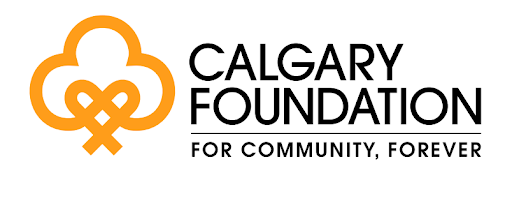 At the Calgary Foundation, registered charities can hold two Community Grants simultaneously: one to support their own work, and one to support partnership with a non-profit society or grassroots group or a collaborative of at least three organizations.
At the Calgary Foundation, registered charities can hold two Community Grants simultaneously: one to support their own work, and one to support partnership with a non-profit society or grassroots group or a collaborative of at least three organizations.
“We didn't want a charity to have to make a choice between being able to support a non-qualified donee and buying a database or getting a website or whatever it is that they wanted to access the grant program for, to do their own work as well.”
- Jason Bates, Vice-President, Grants & Community Initiatives, Calgary Foundation
The Calgary Foundation also funds local community projects led by non-charities through their small-scale Stepping Stones grant program. Outside of financial support, the Calgary Foundation has recently expanded their Community Knowledge Centre – an online database of community organizations in the city – to include organizations without charitable status and increase the visibility of their work among potential individual donors.
“Sometimes [the funding] is for human service related projects where equity seeking groups have a different approach that works better with their communities, and they have the trust to deliver those programming … and then some of our grassroots work, it really is about supporting the development of community leadership. Sometimes just a little bit of money can help an emerging leader lead their project, learn more, develop their reputation, and have that growth for themselves and their organization that way.”
– Julie Black, Citizen Engagement Associate, Calgary Foundation

Ensuring funding is spread equitably across the nonprofit sector is a priority for Imagine Canada. Grant Connect, Imagine Canada's fundraising research platform, exists to help charities and nonprofits of all kinds access the funding they need to strengthen their communities. Inspired by conversations with the funders above and by stories we hear from grassroots organizations, we are taking the barriers faced by non-charities into account as we examine how Grant Connect can facilitate more impactful relationships between funding bodies and the social purpose sector, and support long overdue systemic changes in Canadian philanthropy.

For updates on the developing legislation around funding non-charities, be sure to subscribe to the Early Alert! If you have questions or thoughts you’d like to share with the Grant Connect team, feel free to connect with us by email!

